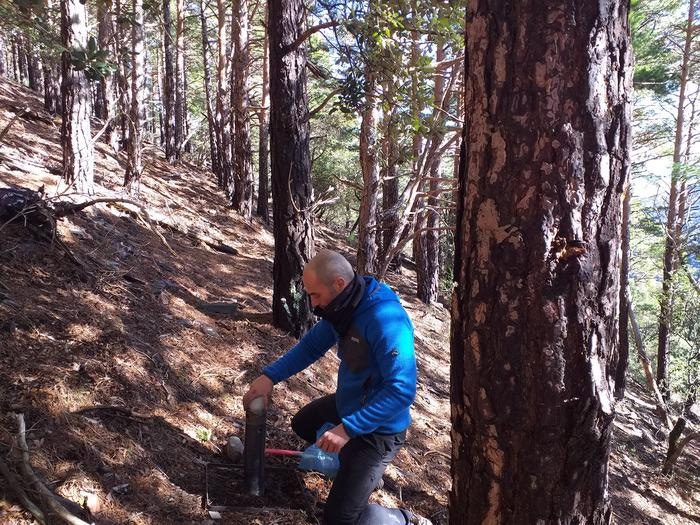By Matt Pullen, B.Sc.Reviewed by Matt Pullen, B.Sc.Jun 8 2022
A study performed by the Silvadapt network illustrates that silvicultural practices like thinning aids forests in adapting to future conditions that are produced by climate change.
 Study of Scots pine in El Moncayo (Zaragoza). Image Credit: University of Cordoba.
Study of Scots pine in El Moncayo (Zaragoza). Image Credit: University of Cordoba.
Normally, forests and vegetation have the potential to absorb CO2 present in the air, thereby decreasing the existence of this greenhouse gas. This phenomenon is called carbon sequestration. If trees help reverse the impacts of global warming, it is logical to conclude that the more trees, the better when it comes to CO2 reduction.
But a study reported in the journal Forests, involving scientists with the Agricultural and Forestry Systems Evaluation and Restoration (ERSAF) group at the University of Cordoba, has illustrated that thinning (decreasing various trees in forests) helps to enhance adaptation to climate change and increase carbon sequestration.
To perform the study, ERSAF scientists coordinated a global study with the help of the Silvadapt project’s Adaptive Silviculture Plot Network. Thinning trials were performed by this network with the help of two intensities (light and heavy) in the reforestations of three Mediterranean pine species: Scots pine, Aleppo pine, and bristlecone pine situated together along the Spanish Mediterranean Arc.
In 2021, all the measurements performed from each of the plots were combined, such as soil organic carbon data and biomass, to learn about the temporal change in carbon sequestration capacity as per the various kinds of thinning that were performed.
With all of this information, the researchers were able to calculate the carbon content of the trees’ structures, discovering that plots subjected to higher-intensity thinning (a larger reduction in forest thickness) sequestered more carbon.
Thinning helps pine forests to adapt to climate change by optimizing forest growth, as well as favoring a greater incorporation of organic matter into the soil, which increases ′carbon storage′ in the forests.
Antonio Cachinero Vivar, Researcher, ERSAF Group, University of Córdoba
These findings were consistent with previous research using dendrochronology (the measurement of the width of tree rings), which had previously shown that greater growth was associated with a reduction in forest density, implying that in the years following thinning, the surviving trees have greater access to resources due to decreased competition. As a result of this increase in resources, they grow more and can sequester more carbon.
The study performed within the framework of the Silvadapt network, including 14 Spanish universities and research centers, has helped to highlight the significance of adaptive forestry in increasing forest resilience and contributing to climate change mitigation.
Journal Reference
Navarro-Cerrillo, R. M., et al. (2022) Long-Term Carbon Sequestration in Pine Forests under Different Silvicultural and Climatic Regimes in Spain. Forests. https://www.mdpi.com/1999-4907/13/3/450